EuroPCR 2023: Late-Breaking Science Video Collection
Published: 18 May 2023
-
Views:
 1843
1843
-
Likes:
 7
7
-
Views:
 1843
1843
-
Likes:
 7
7
-
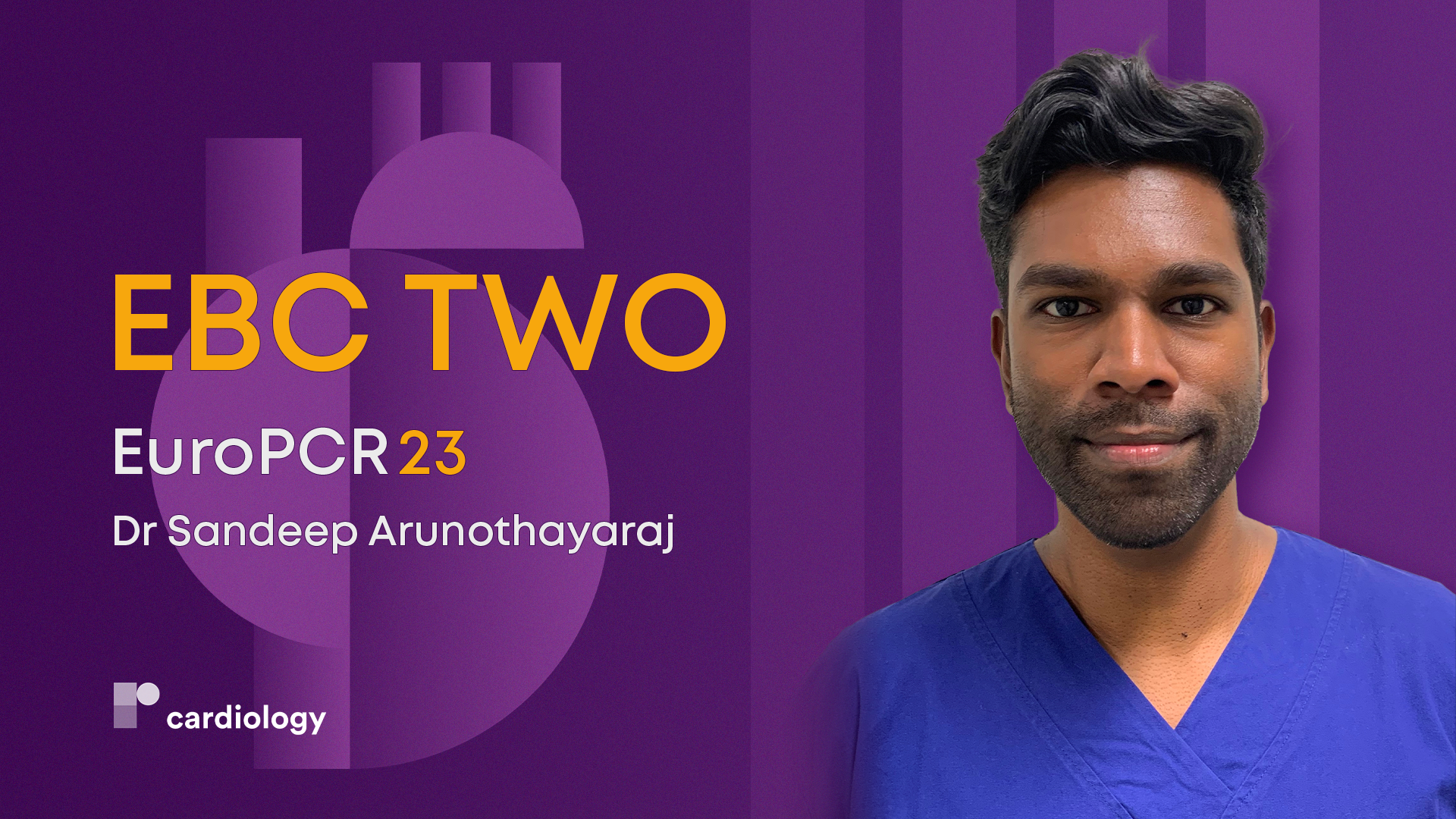 Up Next
Up Next -
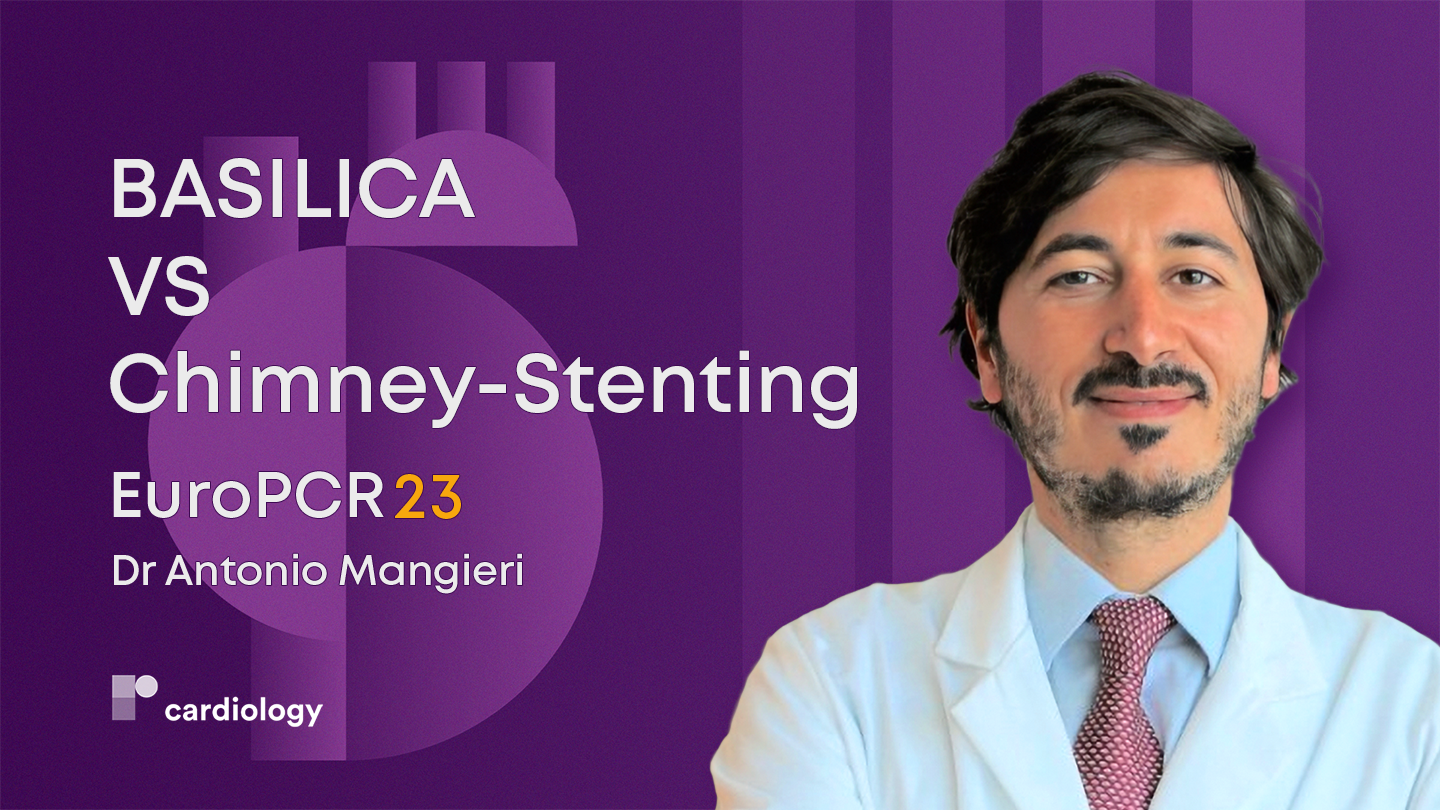 6m 12sPart 1 | Session 2 BASILICA Vs Chimney-Stenting for TAVR-Related Coronary Obstruction
6m 12sPart 1 | Session 2 BASILICA Vs Chimney-Stenting for TAVR-Related Coronary Obstruction -
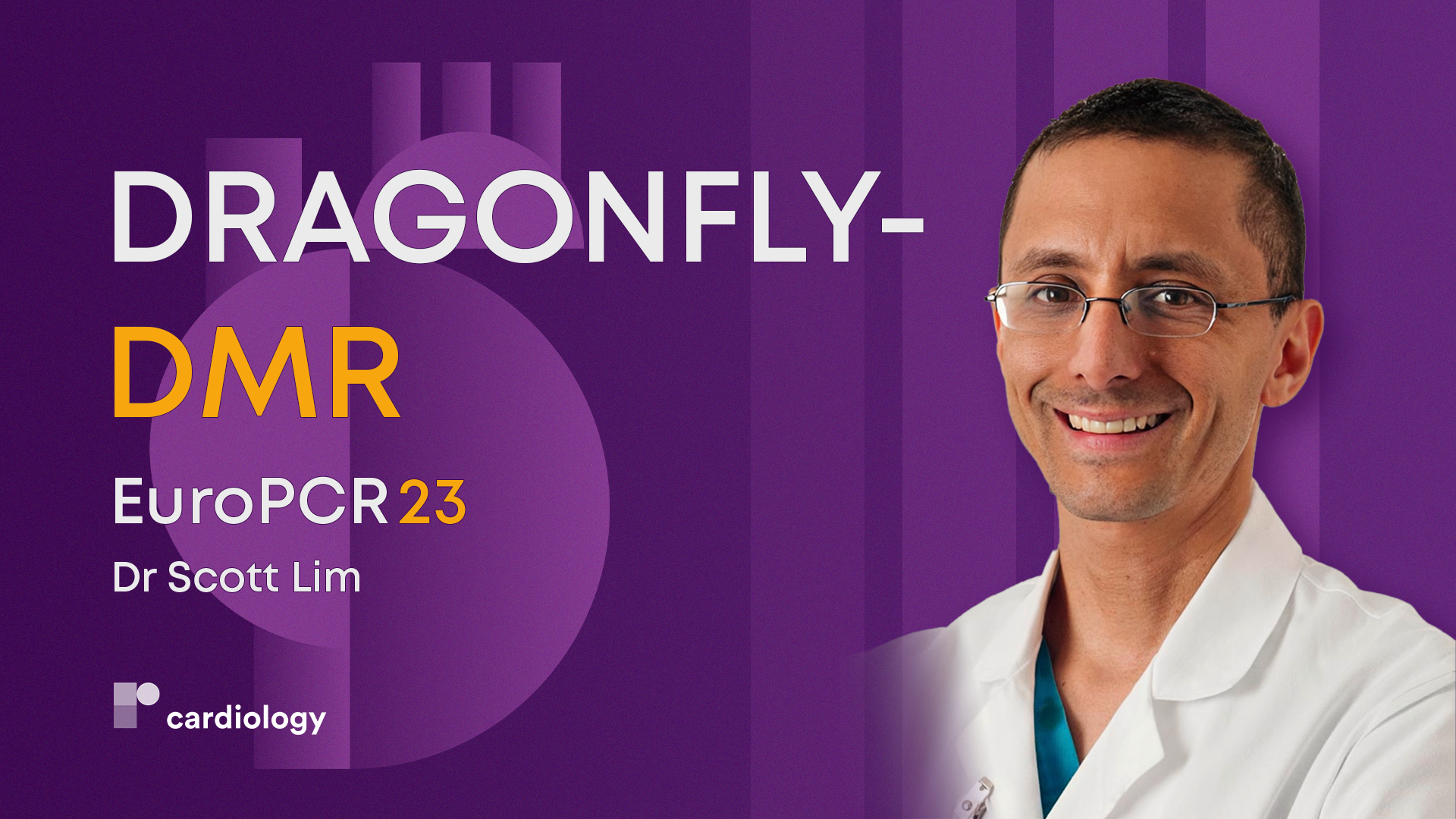 3m 15s
3m 15s -
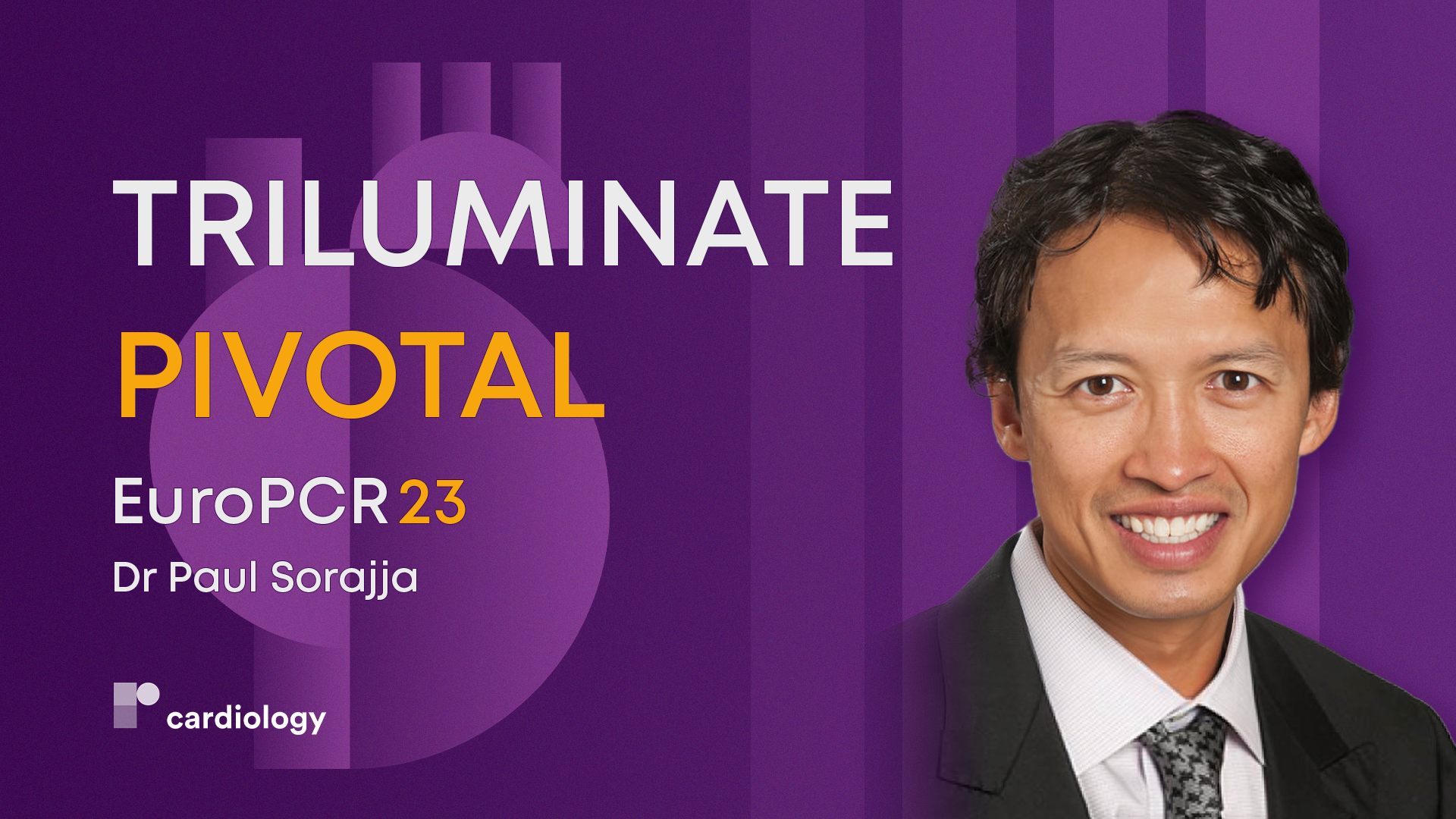 3m 30sPart 1 | Session 4 TRILUMINATE Pivotal: TEER for Tricuspid Regurgitation
3m 30sPart 1 | Session 4 TRILUMINATE Pivotal: TEER for Tricuspid Regurgitation -
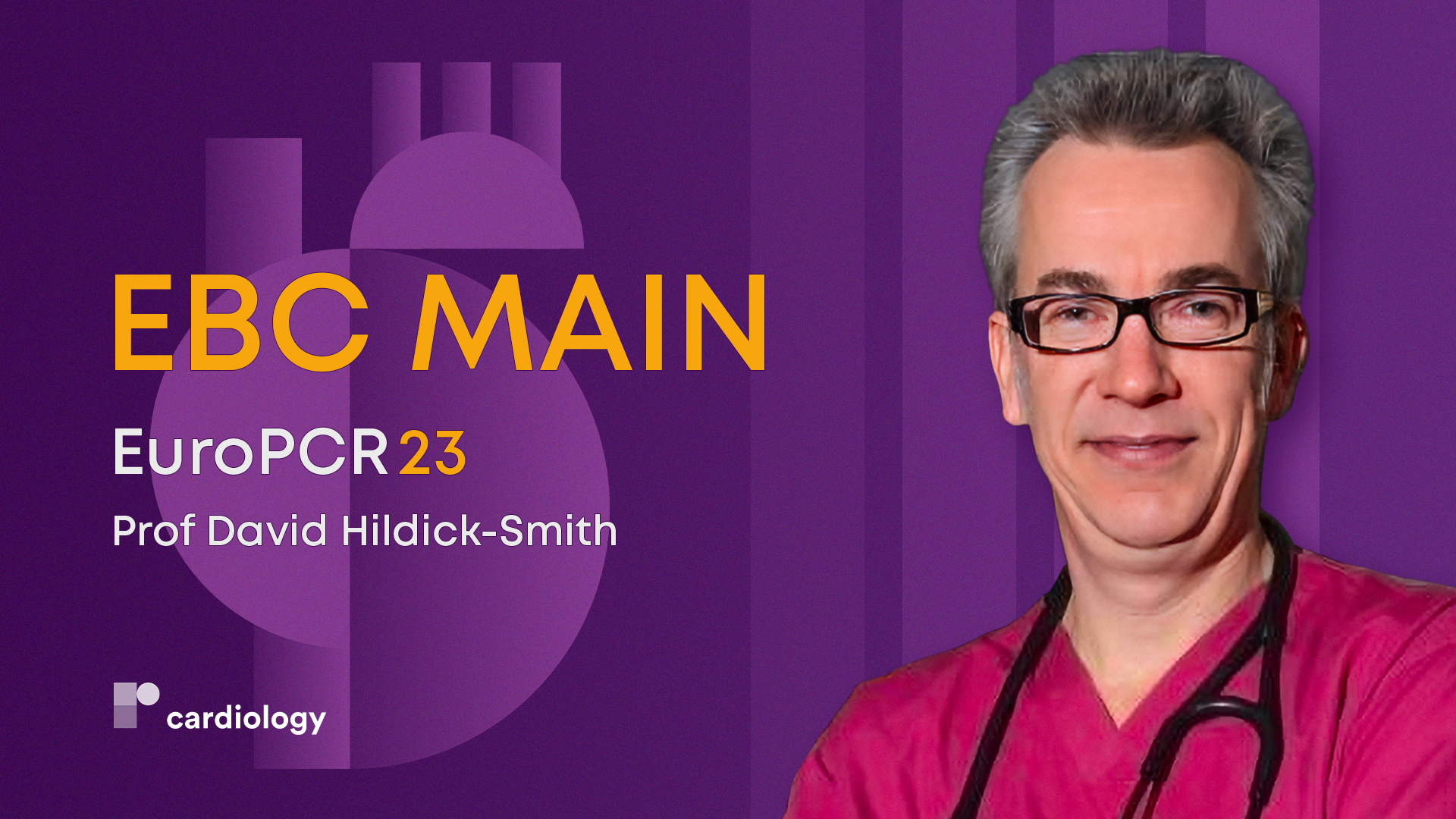 6m 7sPart 1 | Session 5 EBC MAIN Three-Year Follow Up
6m 7sPart 1 | Session 5 EBC MAIN Three-Year Follow Up -
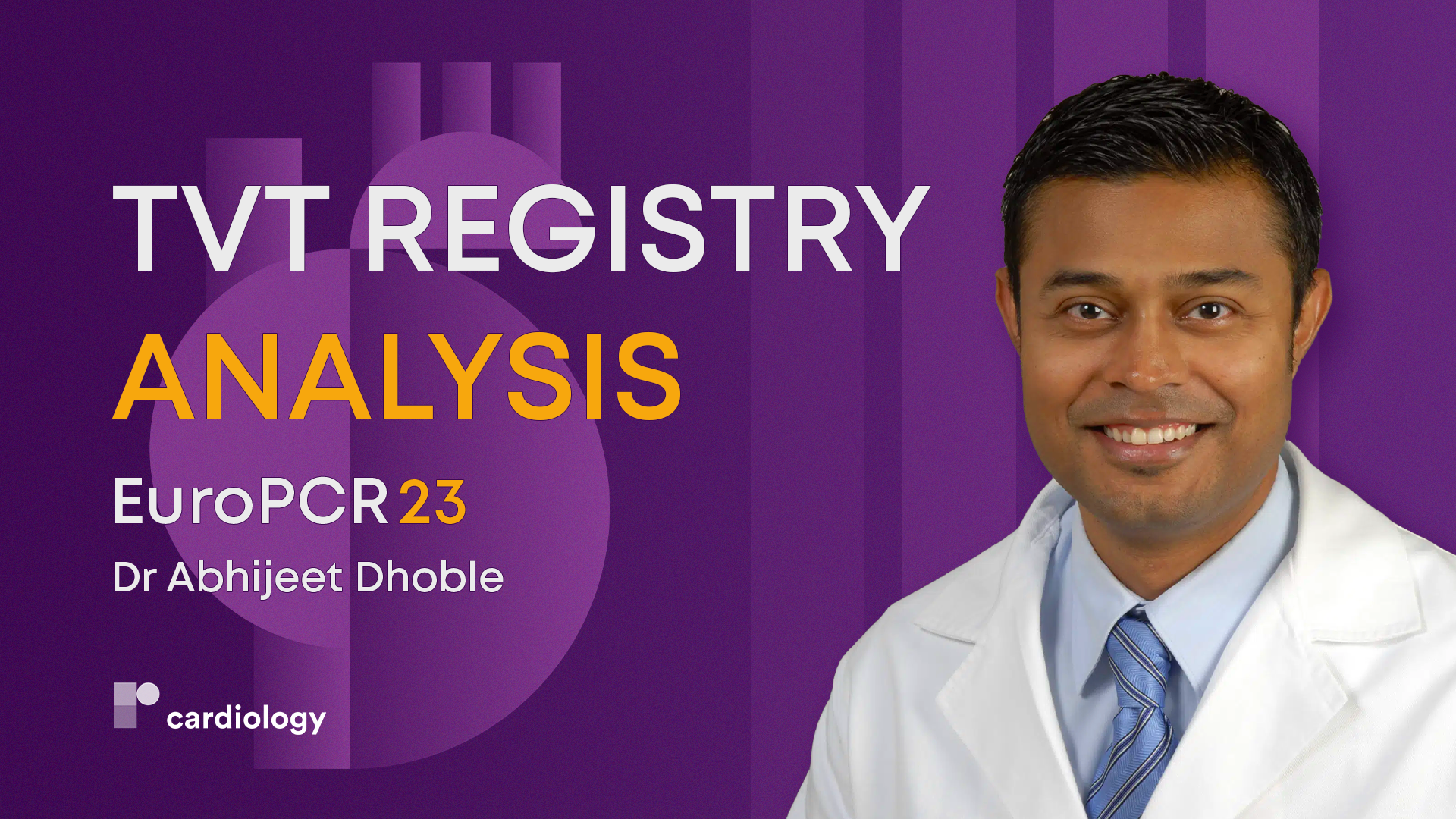 4m 59sPart 1 | Session 6 TVT Registry Analysis: TAVR in Patients with Cardiogenic Shock
4m 59sPart 1 | Session 6 TVT Registry Analysis: TAVR in Patients with Cardiogenic Shock -
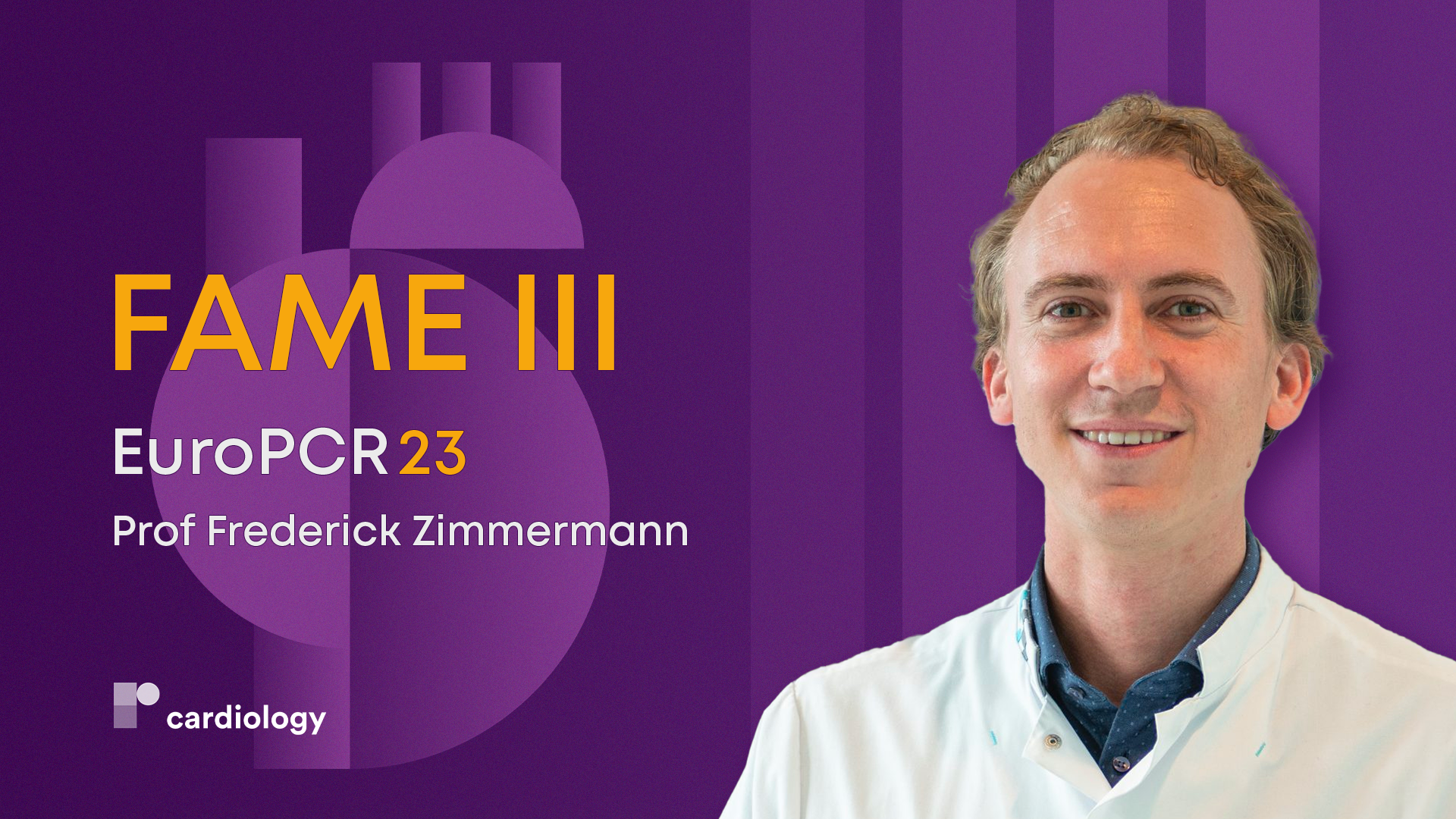 2m 35sPart 1 | Session 7 FAME III Three-Year Follow-Up
2m 35sPart 1 | Session 7 FAME III Three-Year Follow-Up
-
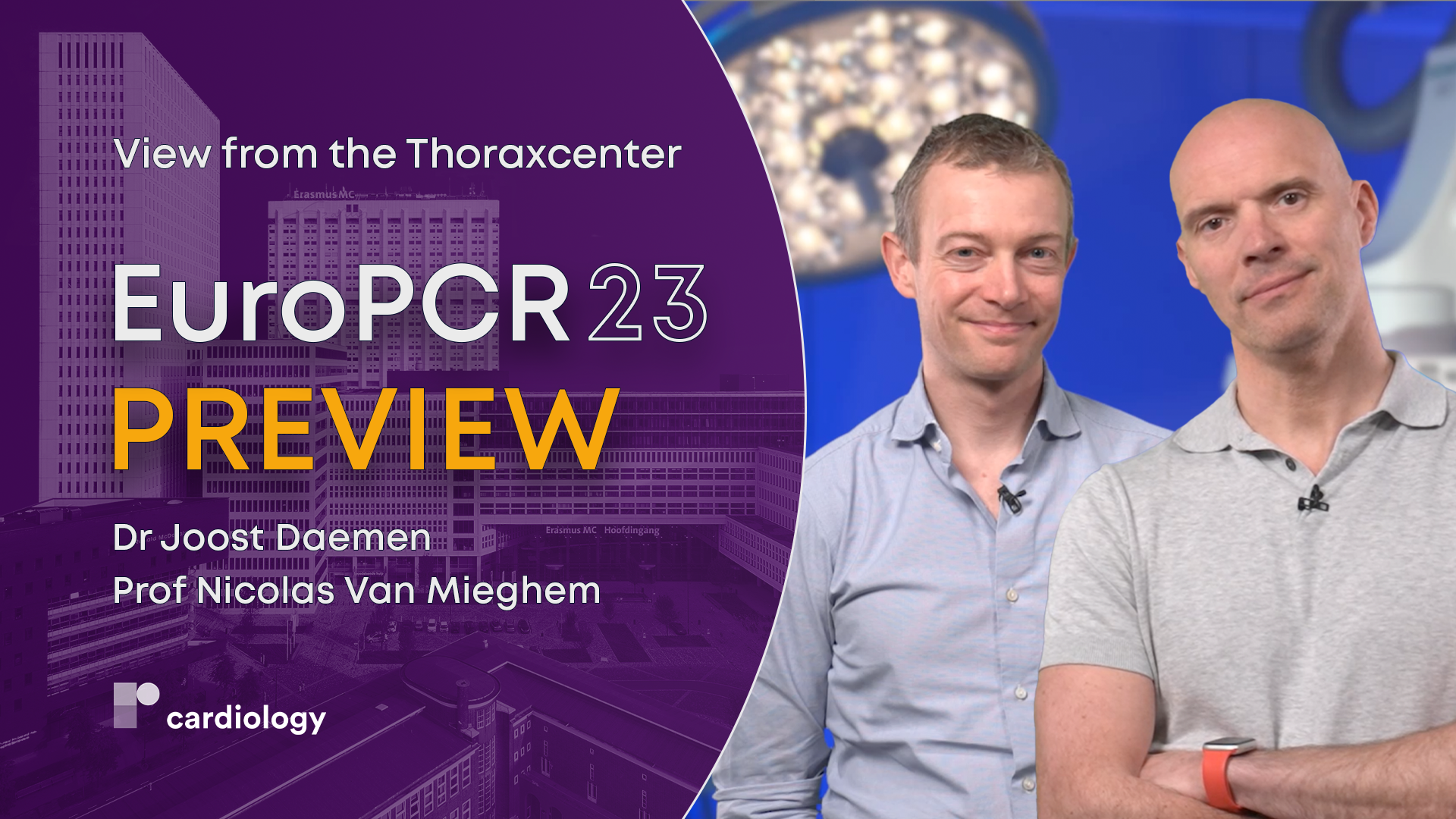 29m 21sPart 2 | Session 1 View from the Thoraxcenter: EuroPCR 23 Late-breaking Science Preview
29m 21sPart 2 | Session 1 View from the Thoraxcenter: EuroPCR 23 Late-breaking Science Preview -
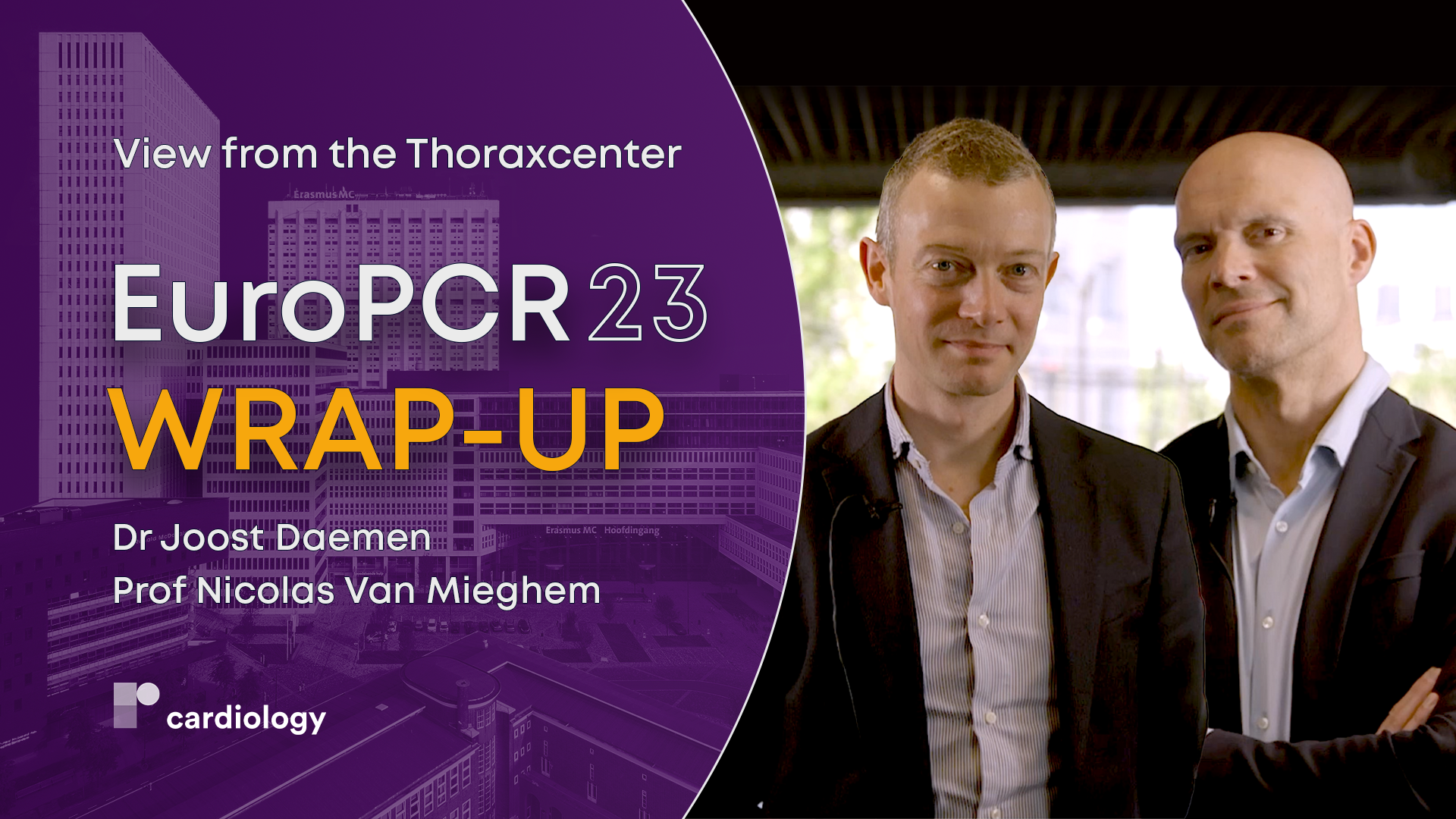 30m 41sPart 2 | Session 2 View from the Thoraxcenter: What's Hot at EuroPCR 23?
30m 41sPart 2 | Session 2 View from the Thoraxcenter: What's Hot at EuroPCR 23?
-
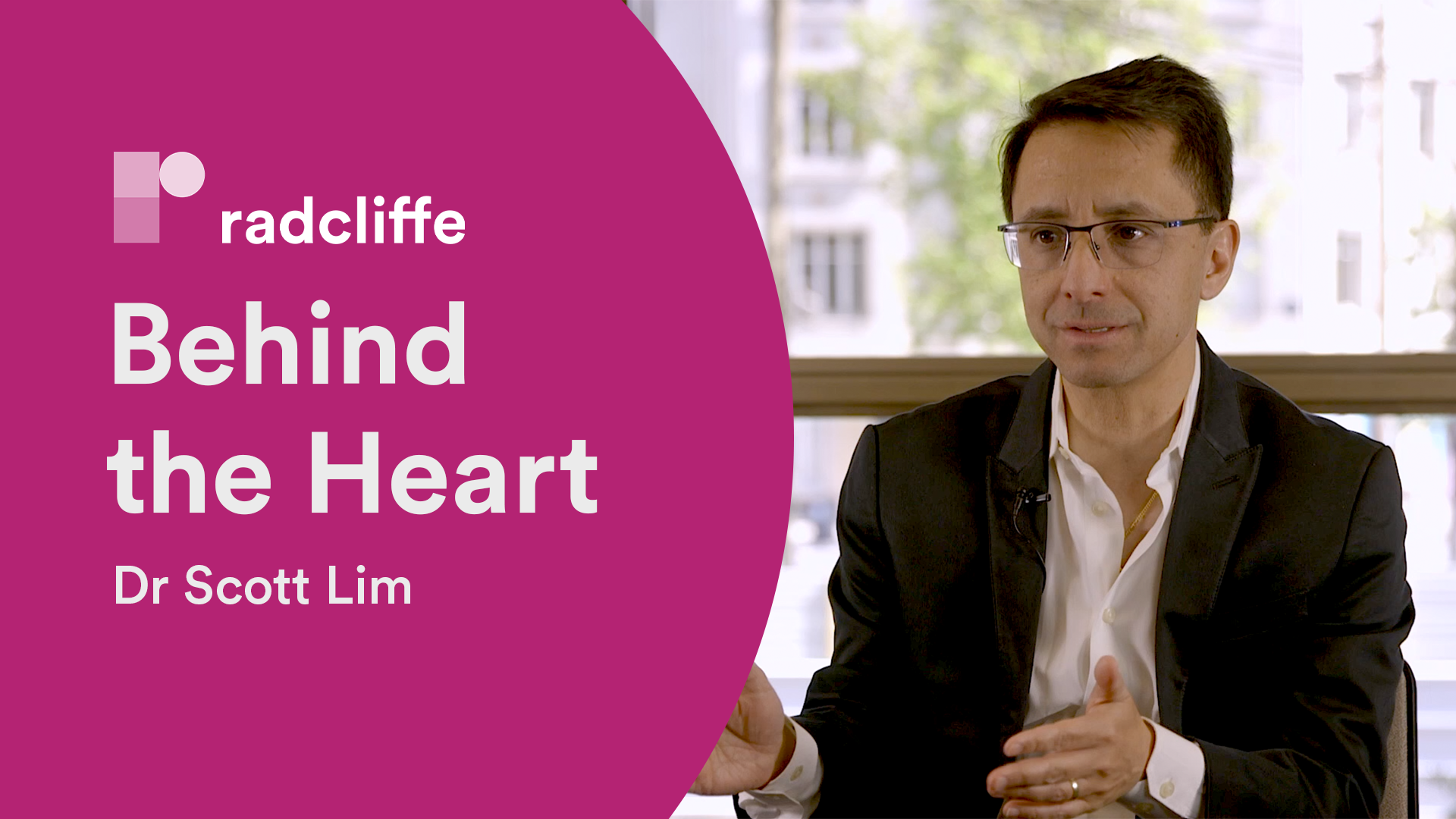 1m 5sPart 4 | Session 1 Dr Lim: Patient Care and Finding Your Passion
1m 5sPart 4 | Session 1 Dr Lim: Patient Care and Finding Your Passion -
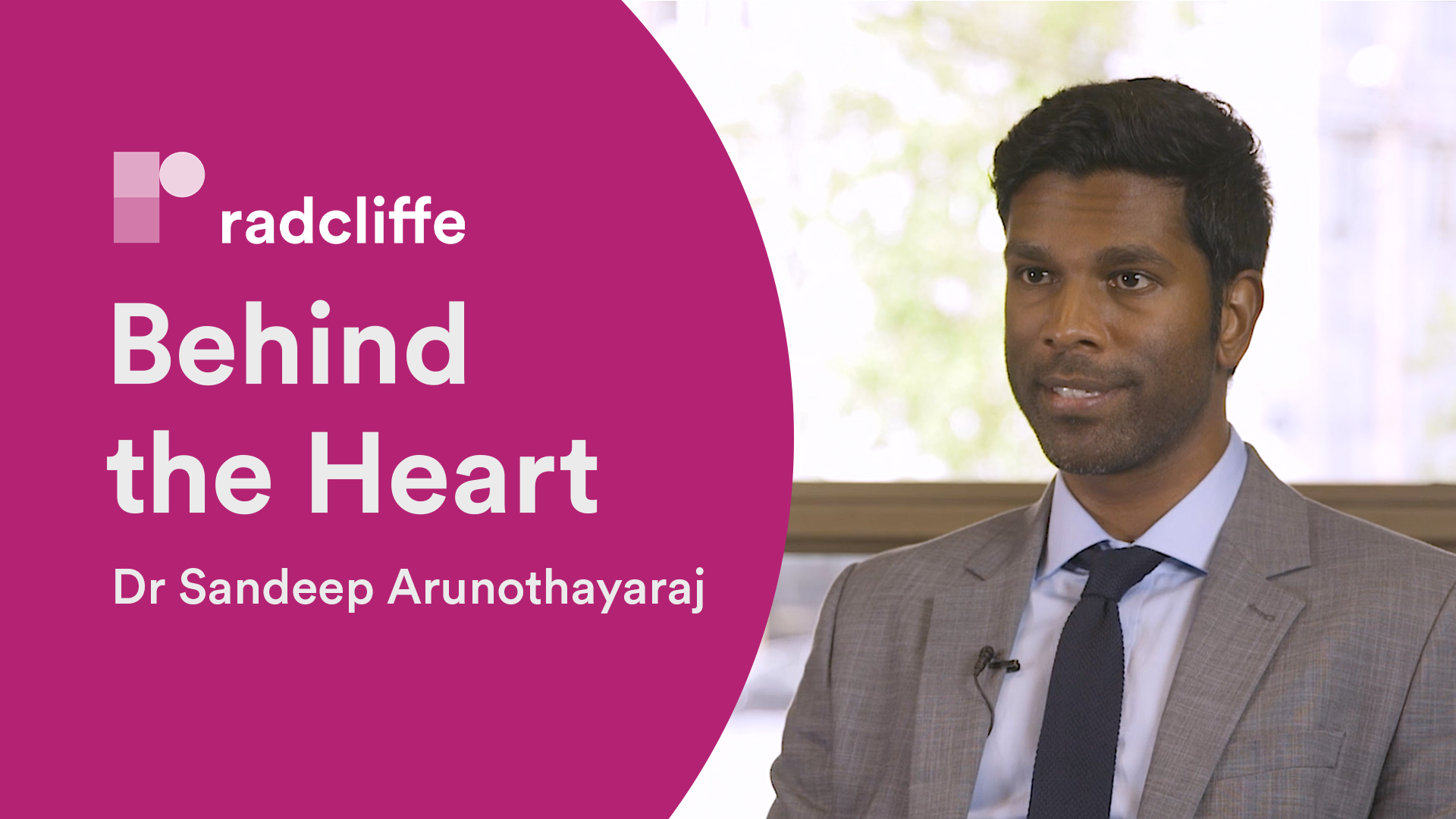 1m 51s
1m 51s -
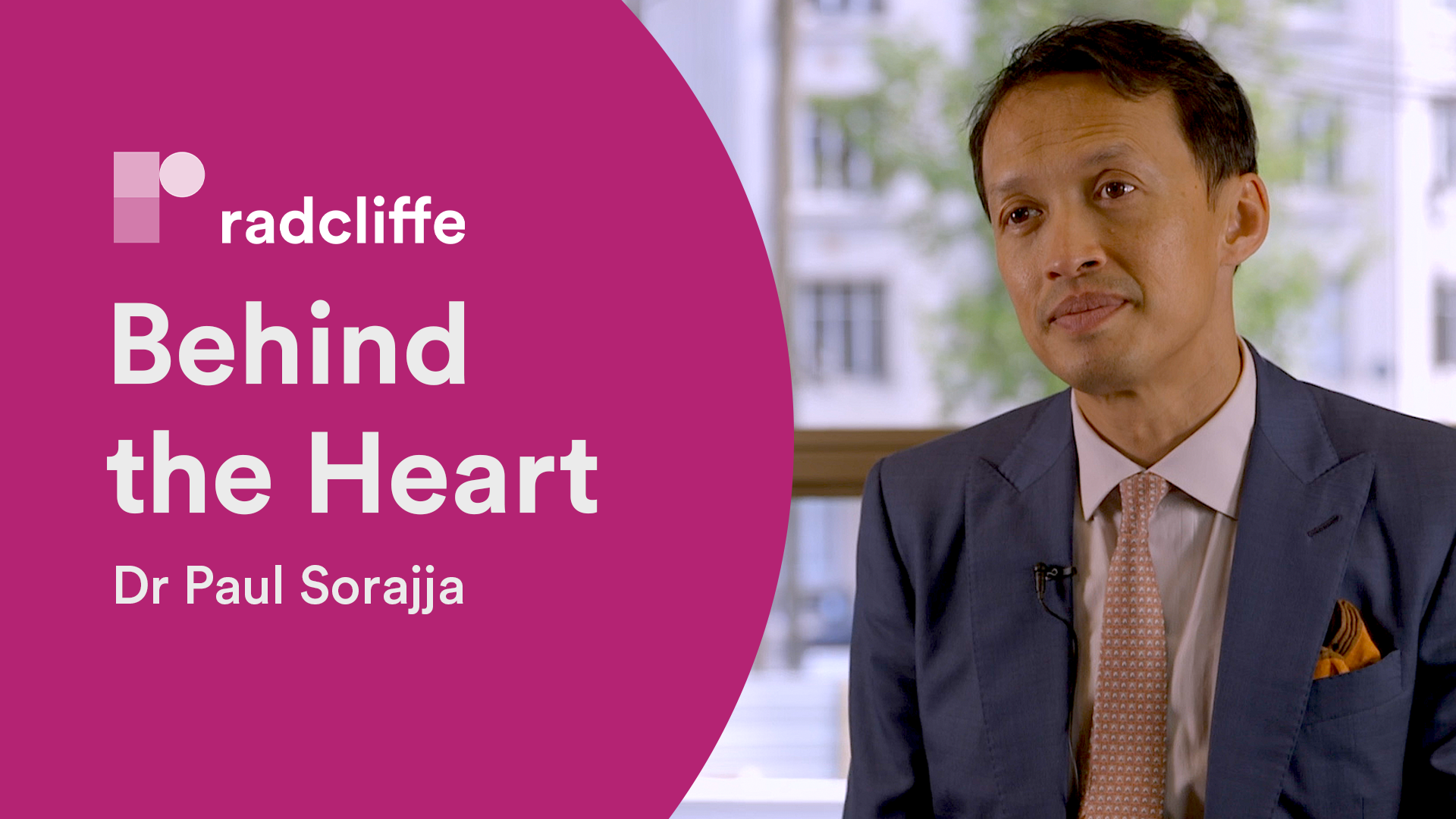 1m 45sPart 4 | Session 3 Dr Sorajja: Why He Chose Cardiovascular Medicine
1m 45sPart 4 | Session 3 Dr Sorajja: Why He Chose Cardiovascular Medicine
Overview
Our regular review series View From the Thoraxcenter, hosted by Prof Nicolas Van Mieghem and Dr Joost Daemen (Thoraxcentre, Erasmus MC, Rotterdam, NL) dives deep into the late-breaking trials of EuroPCR 2023, spotlighting the impactful data.
For short, concise coverage of the key data revealed, our accessible Expert Interviews were conducted with select faculty, focussing on the results, applicability and impact on future research.
Hear commentary on the practice-changing trials of EuroPCR 2023 from selected faculty in our Highlights Reviews.
Watch our Behind the Heart Series to hear more from the personal perspectives of the investigators behind the top trials of EuroPCR 2023.
More from this programme
Part 1
Expert Interviews
Short, concise overviews of the key data revealed at EuroPCR 2023, focussing on the results and impact on future research.
Part 2
View from the Thoraxcenter
In these concise episodes of View from the Thoraxcenter, Prof Nicolas Van Mieghem and Dr Joost Daemen (Thoraxcentre, Erasmus MC, Rotterdam, NL) offer their thoughts on the top late-breaking trials that will be presented at EuroPCR 2023.
Part 3
Highlights Reviews
Commentary on the top late-breaking trials of EuroPCR 2023, as chosen by selected faculty.
Part 4
Behind the Heart
Watch our Behind the Heart series to learn more the personal perspectives from the investigators behind top trials in cardiovascular science.
About the episode
EuroPCR 23 — We are joined onsite by Dr Sandeep Arunothayaraj (University Hospitals Sussex NHS Foundation Trust, UK) to discuss the findings from a five-year follow-up of the EBC Two Trial. (NCT01560455)
EBC Two investigated single-stent versus dual-stent techniques in treating large bifurcation lesions. Over 200 patients were enrolled in the trial. The study found that routine culotte did not improve 5-year MACE in non-left main true bifurcations compared to provisional stenting. Side branch disease length did not affect this result. Only 16% of provisional patients required a second stent, resulting in significant savings in cost, radiation, time and potential procedural complications. These findings strongly support using the provisional strategy as the default approach for bifurcation disease.
Interview Questions:
- What is the background of this study?
- What was the study design, patient population and outcome measures?
- What were the key findings presented at EuroPCR?
- How were operator experience and expertise accounted for in the trial?
- Based on these findings which patients would benefit from a provisional T-stent strategy?
- What are the potential implications for clinical practice?
- What are the next steps?
Recorded on-site at EuroPCR 2023, Paris.
Editors: Jordan Rance and Mirjam Boros
Video Specialists: Oliver Miles and Dan Brent








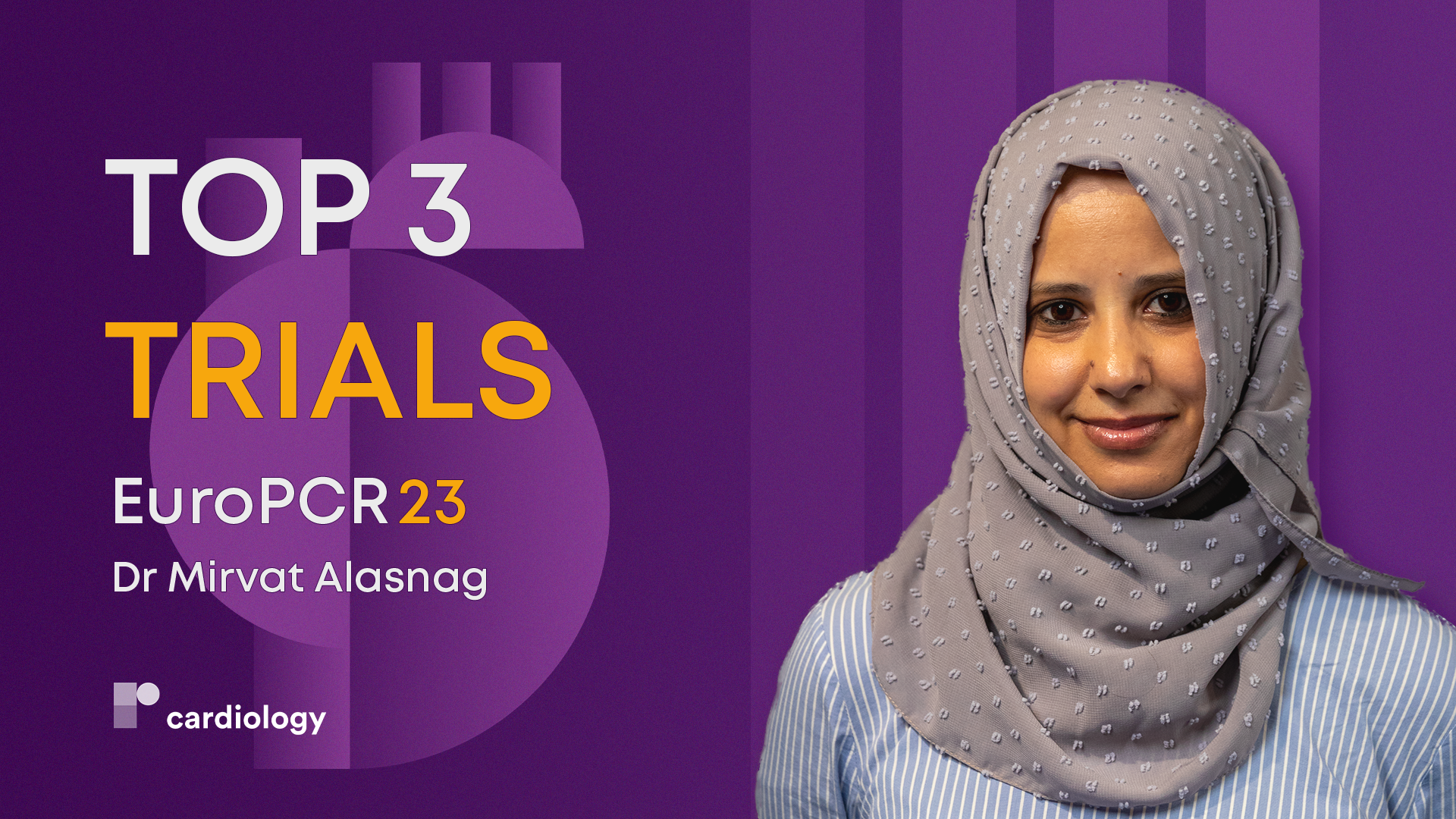
Comments